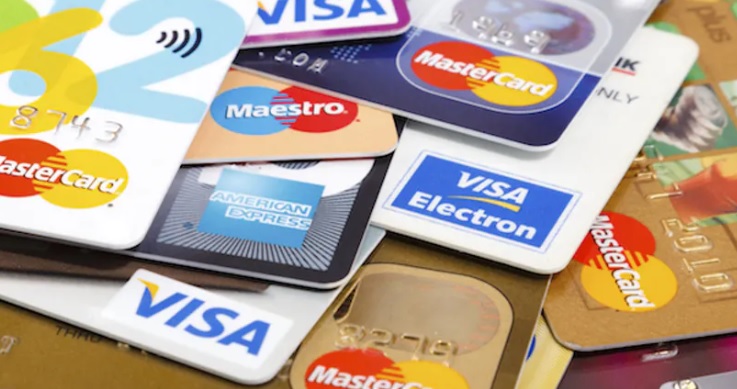The British Gambling Commission, the UK’s sole landbased and online casino regulator, is considered one of the toughest, if not the toughest, gambling watchdogs in the world. The UKGC boasts an unprecedented commitment to ensuring a fair and safe gaming environment for gamblers in Great Britain, striving to reduce gambling-related harm to the bare minimum. And it would be fair to say it succeeds, considering the tough regulatory demands it imposes on its licensees.
A Brief Overview of the Credit Card Ban
One of the Commission’s latest safety measures came into effect on April 14th, 2020, when the regulator officially enforced a ban that prohibits locally licensed gambling operators from accepting payments via credit cards. The official announcement was wade several months earlier, in January of the same year.
The measure also applies to funding gambling accounts via cards that are linked to virtual wallets like PayPal, Neteller, and Skrill. The prohibition is applicable to all virtual and brick-and-mortar betting products, with no exceptions made, not even for the National Lottery.

The Ban’s Effects from the Perspective of UK Gamblers
So will this credit card prohibition affect the local casino industry and how? The effects of the ban are two-fold. From the perspective of players, the inability to deposit with credit cards to casino sites may turn out to be highly beneficial since it will lead to a reduction in gambling-related harm.
As everyone will tell you, it is rather easy to overspend when using a credit card. This applies to overspending in all contexts, not only to online wagering. Therefore, the ban protects UK players from potential financial harm. With the prohibition in effect, it would be difficult, if not impossible, to gamble with money players do not actually have.
Additionally, the UK regulator, accidentally or not, chose to introduce the new measure at a very adequate time, namely amid the raging coronavirus pandemic and its associated lockdown. Even without counting the global COVID-19 crisis, the UK has seen a rise in the use of certain gambling products in recent years.
Two prime examples are virtual slots and online sports betting. A research conducted by the UKGC has indicated there is a growing interest in betting products on behalf of local consumers.
According to the Chief Executive of the regulatory body, Mr. Neil McArthur, studies have shown that roughly 22% of the online players, who conduct deposits via credit cards, are indeed problem gamblers. From this perspective, the ban will actually help shape a safer gambling environment and reduce the risks of developing a gambling addiction. For further information on Mr McArthur’s stance on the measure, you can check the source casinoguardian.co.uk.
What about the Ban’s Effects on Casino Operators?
Few of the largest gambling companies that operate on British soil have been subject to criticism in the past years for allowing some of their customers to incur massive financial debts. Certain industry experts would argue that the local casino industry might be, more or less, hit by the credit card ban.
In fact, the effects were felt by some of the UK betting firms almost immediately after the Gambling Commission announced its intentions to ban credit-card payments in mid-January, 2020. As soon as the announcement was released, the shares of some of the largest gambling companies that operate on British soil saw a decline. This is not surprising, considering the stocks’ value is normally influenced by important news releases like this one.
Operator 888, one of the oldest and most prominent online gaming brands in the country, experienced a decline of 3.3 percent. The same occurred to its competitor, the global gambling giant William Hill (est.1934), whose shares dropped 3.2 percent. Similar tendencies were observed in the share value of other large UK gambling firms, including GVC Holdings and Flutter, the owner of the well-known betting brand Paddy Power.
With that said, some industry experts are of the opinion that while banning credit card payments is, indeed, a big step toward a safer gambling industry, it is hardly one that would have a severe negative impact on British operators, at least not in the long run.
Even more so considering the UK is home to one of the largest and most developed gambling industries on a global scale. This sector alone generated a Gross Gaming Yield (GGY) of approximately £14.3 billion for the period between October 2018 and September 2019.
The Wrap-Up
To wrap it up, gambling has now become an inseparable part of Great Britain’s entertainment industry. Virtual betting sites have only served to drive its popularity even further. This tendency is a double-edged sword, however, since the growth of the sector has also made it more difficult to enforce control over issues such as problem gambling.
When the action takes place online, it is harder to determine whether or not given customers are of legal gambling age. The same pertains to preventing and exercising control over fraudulent activities, such as money laundering and funding terrorist organizations.
From this perspective, the proactive approach of the British regulator lays the foundations for a better-regulated gaming sector that would definitely ensure a safer environment for UK players. Other countries may soon take notice and follow the UK regulator’s example by introducing similar measures to reduce gambling-associated harm.

















